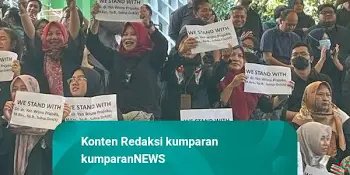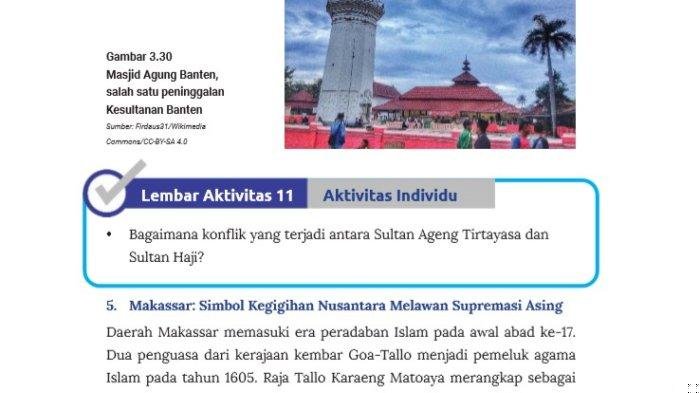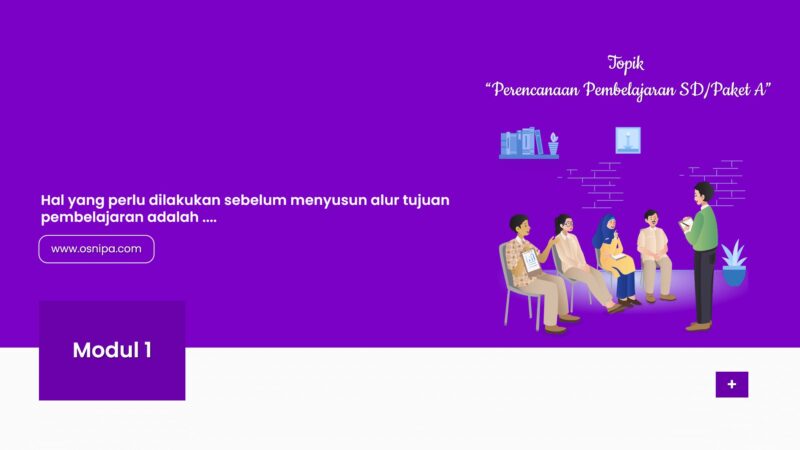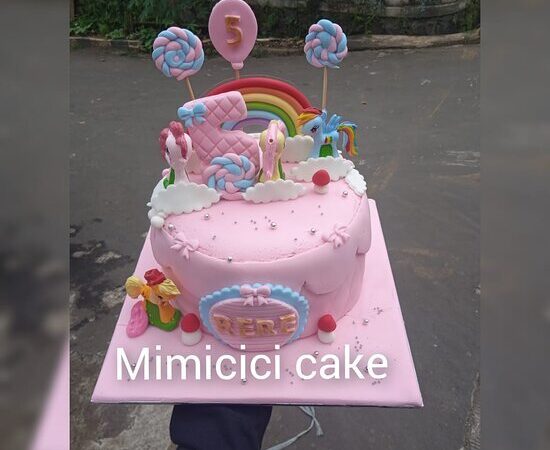Sifat Pendidikan Yang Paling Sesuai Dengan Bangsa Kita Menurut Ki Hajar Dewantara Adalah Untuk Kemajuan Bangsa

Education, as envisioned by Ki Hajar Dewantara, centers around the idea of fostering a well-rounded character and nurturing a deep connection to one’s culture. He believed that the sifat pendidikan yang paling sesuai dengan bangsa kita menurut ki hajar dewantara adalah education that promotes independence, creativity, and a sense of community. By emphasizing the importance of national identity in learning, Dewantara laid the groundwork for an educational philosophy that transcends mere academics. This approach remains relevant today as we strive to cultivate future generations who are not only knowledgeable but also socially responsible.
sifat pendidikan yang paling sesuai dengan bangsa kita menurut ki hajar dewantara adalah
Ki Hajar Dewantara is a prominent figure in Indonesian education, known for his innovative ideas and vision for schooling that aligns with the culture and values of the nation. His philosophy centers around the concept of education that is truly reflective of the Indonesian identity. He emphasized the importance of a holistic approach to education that nurtures the whole person – mind, body, and spirit. This article delves into the characteristics of education that Ki Hajar Dewantara believed to be most suitable for our nation. We will explore his educational principles and how they apply to contemporary Indonesian society.
The Essence of Ki Hajar Dewantara’s Educational Philosophy
Ki Hajar Dewantara’s views on education stem from his desire to cultivate a sense of nationalism and character among students. He believed that education should not only provide knowledge but also develop moral values and emotional intelligence. The key aspects of his educational philosophy are:
- Independence: He advocated for fostering independence in students, promoting self-reliance and the ability to think critically.
- Cultural Relevance: Education must resonate with the local culture and traditions, making learning relatable and relevant to students’ lives.
- Holistic Development: Dewantara emphasized nurturing not just intellectual capabilities but also emotional, social, and physical development.
- Character Building: The formation of character and moral values is a fundamental aspect of education, preparing students to be responsible citizens.
Independence: A Key Pillar of Education
Independence in learning fosters critical thinking and self-confidence. Ki Hajar Dewantara believed that education should empower students to learn from their environment and experiences. Here are a few ways independence can be integrated into education:
Encouraging Critical Thinking
– Teachers should create an environment where students feel comfortable to express their thoughts and ask questions.
– Curriculum should include problem-solving activities that require analytical skills.
Promoting Self-Directed Learning
– Allow students to choose projects based on their interests, facilitating a sense of ownership over their education.
– Encourage research and exploration of topics outside the prescribed syllabus.
Building Confidence
– Celebrate individual achievements to boost confidence.
– Allow students to teach peers, reinforcing their understanding and confidence in their knowledge.
Cultural Relevance in Education
Education should reflect and respect the cultural heritage of students. Dewantara emphasized that understanding one’s culture enhances self-esteem and connection to the community. The following strategies can help incorporate cultural relevance into education:
Curriculum Design
– Integrate local history, folklore, and customs into the curriculum.
– Use local languages and dialects in teaching where appropriate.
Community Involvement
– Involve local community members in school activities and courses, creating a bridge between education and local culture.
– Organize field trips to historical sites, allowing students to engage directly with their culture.
Festivals and Celebrations
– Schools should celebrate local festivals, providing students with the opportunity to explore and embrace their cultural identity.
– Encourage students to participate in cultural performances, promoting a sense of pride.
Holistic Development in the Educational Experience
Ki Hajar Dewantara believed that education should address all aspects of a student’s growth – intellectual, emotional, physical, and social. Here’s how schools can facilitate holistic development:
Intellectual Growth
– Encourage creativity through arts, music, and literature.
– Provide opportunities for collaborative projects that promote teamwork.
Emotional Intelligence
– Implement programs focused on emotional literacy, helping students understand and manage their emotions.
– Teach conflict resolution skills, fostering a more harmonious school environment.
Physical Education
– Include physical activities and sports in the daily curriculum to promote health and well-being.
– Educate students about healthy living and nutrition.
Social Skills Development
– Incorporate group activities that require cooperation and communication.
– Organize community service projects to instill a sense of responsibility and empathy.
Moral and Character Education
Dewantara advocated for character education as a core aspect of the educational process. Here are some approaches to effectively implement character education:
Value-Based Curriculum
– Integrate values such as honesty, respect, and kindness into the curriculum.
– Use stories and examples from Indonesian culture to illustrate these values.
Role Modeling
– Teachers and staff should exemplify the values they wish to instill in students.
– Create opportunities for mentorship, allowing students to learn from positive role models.
Reflection Practices
– Encourage students to reflect on their actions and decisions regularly.
– Implement journaling or discussion sessions focused on ethical dilemmas, promoting critical thinking about moral choices.
The Role of Teachers in implementing Ki Hajar Dewantara’s Vision
Teachers play a critical role in embodying Dewantara’s educational philosophy. They must be equipped not only with knowledge but also with the ability to inspire and guide students. Here’s how teachers can fulfill this role:
Continuous Professional Development
– Participate in workshops and training to improve teaching methodologies and stay current with educational trends.
– Collaborate with peers to share best practices and learn from each other.
Culturally Responsive Teaching
– Be aware of students’ diverse cultural backgrounds and adapt teaching strategies accordingly.
– Foster an inclusive classroom environment where all students feel valued and respected.
Building Strong Relationships
– Develop trusting relationships with students, making them feel safe and supported in their learning environment.
– Be approachable and empathetic, understanding students’ personal challenges outside of school.
Challenges to Implementing Ki Hajar Dewantara’s Philosophy
Despite the clear benefits of implementing Dewantara’s educational principles, several challenges exist:
Standardized Testing Pressure
– The focus on standardized testing often leads to a narrow curriculum that prioritizes rote learning over critical thinking and creativity.
– Schools must seek to balance testing requirements with innovative teaching methods.
Lack of Resources
– Many schools struggle with limited resources and funding, which can hinder the integration of holistic and culturally relevant practices.
– Advocacy for educational funding and community support is essential for overcoming these barriers.
Resistance to Change
– Institutional inertia may slow the adoption of new educational practices.
– Educators and administrators must work collaboratively to share the benefits of Dewantara’s philosophy and create a vision for change.
The Way Forward: Integrating Dewantara’s Philosophy in Modern Education
To truly embrace Ki Hajar Dewantara’s vision for education, modern educational institutions need to commit to integrating his principles into their teaching frameworks. Here are steps toward this goal:
- Curriculum Reform: Schools should review and revise their curricula to include more culturally relevant content and focus on the holistic development of students.
- Teacher Training: Implement professional development programs that focus on Dewantara’s educational philosophy, equipping teachers to incorporate these ideals into their practice.
- Community Engagement: Foster stronger partnerships between schools and local communities to enhance the cultural relevance of education.
- Advocacy for Policy Change: Educators and leaders should advocate for policies that support holistic and culturally responsive education at the national level.
Education shaped by the philosophies of Ki Hajar Dewantara offers a pathway toward a more inclusive, holistic, and culturally relevant system. By focusing on the needs and values of our society, we can create an environment where students not only thrive academically but also grow as compassionate, responsible citizens. The dream of an education that reflects the unique identity of our nation is within our reach, and it requires the collective effort of educators, parents, and the broader community to turn this vision into reality.
Filosofi Pendidikan Ki Hadjar Dewantara
Frequently Asked Questions
What are the core values of education according to Ki Hajar Dewantara?
Ki Hajar Dewantara emphasized values such as independence, creativity, and cultural relevance in education. He believed that education should nurture the character and personality of students, allowing them to grow into responsible and innovative citizens. Dewantara advocated for an educational approach that aligns with Indonesian culture, reflecting the nation’s identity and values.
How can Ki Hajar Dewantara’s educational philosophy influence modern teaching practices?
Modern teaching practices can benefit from Ki Hajar Dewantara’s philosophy by incorporating student-centered approaches. This means focusing on the individual needs and potentials of each student, encouraging interactive learning, and integrating local culture into the curriculum. Teachers can also foster a supportive environment that promotes critical thinking and problem-solving skills, allowing students to apply their knowledge in real-world contexts.
What role does cultural relevance play in education according to Ki Hajar Dewantara?
Cultural relevance plays a crucial role in Ki Hajar Dewantara’s vision of education. He believed that education should reflect and incorporate the cultural heritage of the Indonesian people. This approach not only helps students connect with their roots but also fosters a sense of pride and belonging. By integrating local customs, traditions, and values into the educational system, students can appreciate their culture while gaining a broader understanding of the world.
How does Ki Hajar Dewantara define the purpose of education for the Indonesian nation?
Ki Hajar Dewantara defined the purpose of education as empowering individuals to become whole and productive members of society. He envisioned education as a means to develop self-reliance, critical thinking, and social awareness. His goal was to prepare learners not just academically, but also morally and socially, enabling them to contribute positively to the Indonesian nation and its advancement.
In what ways did Ki Hajar Dewantara advocate for educational accessibility?
Ki Hajar Dewantara strongly advocated for educational accessibility by promoting the idea that education should be available to all, regardless of social status or background. He believed that every child has the right to education and should not be hindered by economic or geographical barriers. Dewantara’s philosophy encouraged the establishment of schools in various communities, aimed at reaching underserved populations and ensuring equitable access to quality education.
What innovative teaching methods did Ki Hajar Dewantara propose?
Ki Hajar Dewantara proposed several innovative teaching methods, including experiential learning and the integration of play in education. He believed that learning should be engaging and enjoyable, allowing students to explore and discover knowledge through hands-on activities. Dewantara also emphasized the importance of nature and the environment in learning, encouraging outdoor education as a way to connect students with the world around them.
Final Thoughts
Sifat pendidikan yang paling sesuai dengan bangsa kita menurut Ki Hajar Dewantara adalah yang menghargai nilai-nilai budaya dan karakter bangsa. Ia menekankan pentingnya pendidikan yang membentuk individu menjadi manusia yang mandiri dan bertanggung jawab. Dengan mengedepankan kebudayaan lokal, pendidikan dapat menciptakan generasi yang tidak hanya cerdas secara akademis, tetapi juga memiliki rasa cinta terhadap tanah air. Oleh karena itu, kita perlu mengintegrasikan nilai-nilai tersebut dalam sistem pendidikan kita untuk menciptakan masa depan yang lebih baik.







